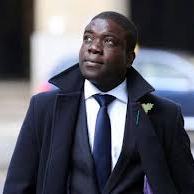Trader Kweku Adoboli. The main anti-hero of the modern stock exchange world
Many exchange-traded funds and investment banks fail not because of weak market conditions, a crisis or external unfavorable factors, but due to the fraudulent actions of their own traders.
The fact is that the overwhelming number of traders work in financial organizations for a rate plus a bonus for excess profits.
At the same time, they earn millions for company owners, and they have billions of dollars in turnover.
Naturally, at a certain point, human greed begins to take over the trader, which leads to unauthorized opening of positions and the desire to use the company’s resource for one’s own purposes.
However, not only traders are to blame, because sometimes company management forces traders to cross the line of the law just to get additional income.
The latest debate over increased regulation of financial markets has been sparked by the egregious fraud of trader Kweku Adoboli, who nearly sent a major Swiss bank into bankruptcy, losing more than $2.3 billion.
Kweku Adoboli, before the fateful events, was something of a dark horse in the financial world that no one knew about.
The future anti-hero of the stock exchange world was born in Ghana on September 15, 1980. It is worth noting that Kweku Adoboli spent his childhood constantly moving.
The fact is that his mother and father were phenomenal diplomats and worked at the UN, so the family constantly had to move, representing the interests of their own country, either in Syria and Iraq, or in Israel and the UK.
Training and career
Constant travel around the world, as well as the enormous financial resources of his parents, allowed Kweku Adoboli to stay in the UK at the age of 12. Adoboli received his first education at a private school in Yorkshire.
Having an excellent basic education at a private school, it is not difficult for him to subsequently enter the University of Nottingham.
Kweku Adoboli had special abilities and was a diligent student, so the Faculty of Finance was an excellent start for his future career.
His first and last job was the UK branch of the Swiss bank UBS. The most interesting thing is that he was hired at the bank branch as an ordinary trainee. However, thanks to his phenomenal abilities, Kweku very quickly began to rise through the ranks.
In the middle of his career, his monthly salary was 12 thousand dollars, and by the end it was 350 thousand dollars. Kweku Adoboli was engaged in hedging risks, namely, he selected assets with a very high correlation and made money on the so-called delta.
In 2011, Kweku Adoboli was accused of unauthorized transactions that cost the bank $2.3 billion. As it turned out later, all reports on hedging were falsified by him, and the trader constantly exceeded the established limits.
At the trial, Kweku Adoboli argued that all transactions were with the consent of management, and violations for the sake of profit were not just approved, but were encouraged in the form of bonuses.

Also at the trial, Kweku argued that this was not the first force majeure situation in the bank, and under pressure from management, he almost caused damage to the bank in the amount of 12 billion, but thanks to the successful market situation, it was possible to close the transactions with a profit.
After the news of the theft, UBS bank shares fell in value by more than 10 percent, and in order to keep the bank afloat, bankers had to make a huge staff reduction, namely, more than 3,500 employees were fired at various bank branches.
The bank remained afloat, but suffered huge reputational losses.
During the court hearing, it turned out that two more people were involved in the scheme, but the company hid this fact by firing employees retroactively. Naturally, all the dogs were hung on Adoboli and he was sentenced to 7 years in prison for fraud.
In 2015, Adoboli was released, but the British authorities immediately tried to deport him to his homeland. Penniless, Kweku and his friends apply for a crowdfunding event to raise money to pay for a lawyer and an appeal.
In two incomplete days, 11 thousand dollars were collected, however, despite this, the trial was lost, and Kweku was deported. UBS was also fined £30 million by regulators for lax employee regulation, which resulted in losses to the bank's depositors.
